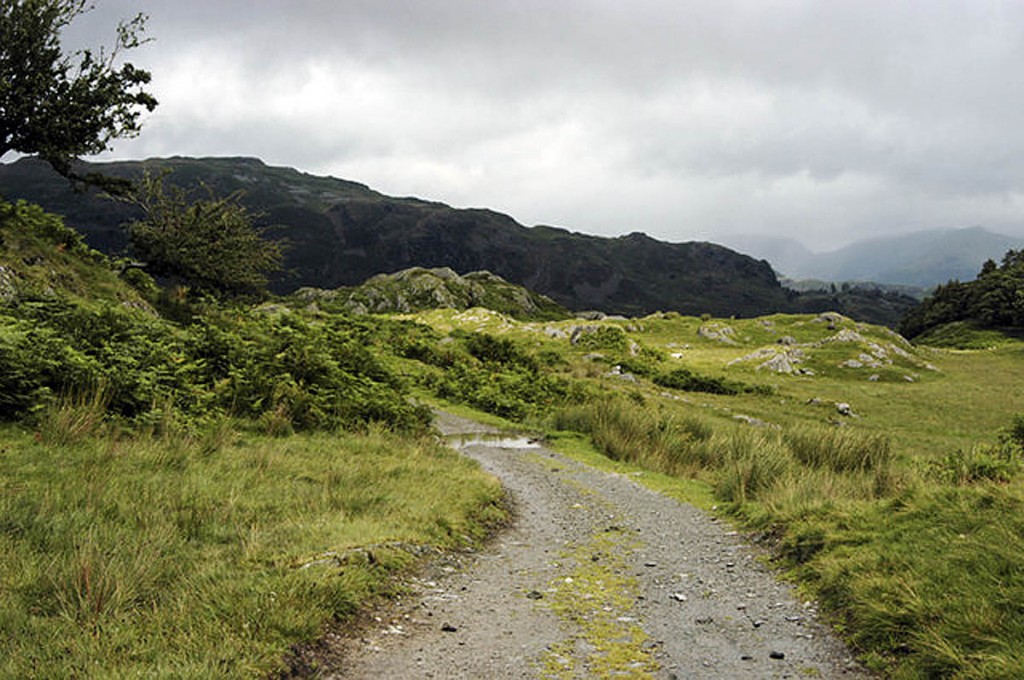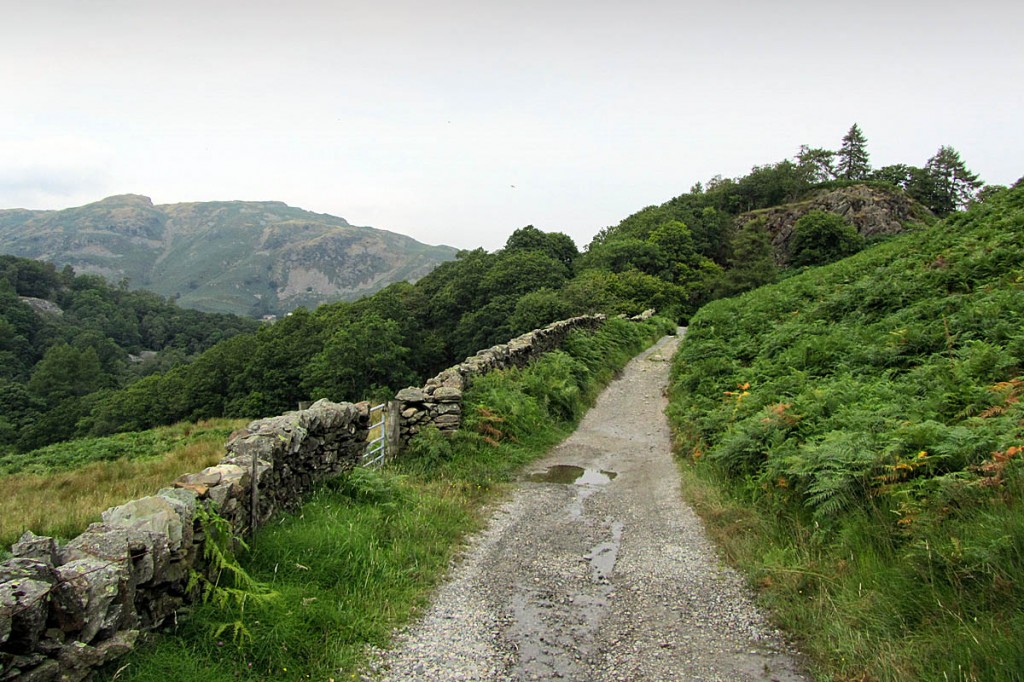Campaigners have lost a legal challenge to the way Lake District bosses decided not to impose restrictions on two unsurfaced roads in the national park.
The Green Lanes Environmental Action Movement secured a judicial review of the Lake District National Park Authority’s actions.
But Mr Justice Dove dismissed the group’s arguments over the unlawfulness of the process the authority followed in its decision not to seek traffic regulation orders on Tilberthwaite Road and High Oxen Fell Road, between Little Langdale and hamlets to the South.
Sitting in the Queen’s Bench Division, the judge ruled that the authority had followed correct procedures when it decided not to impose the orders, which would restrict use of the green lanes by 4×4 vehicles and motorbikes.
But Gleam pledged to continue its battle and said it was only a matter of time before the national park would be forced into imposing traffic orders. It also said it was considering whether there were ground to appeal against Judge Dove’s decision.
The Trail Riders Fellowship, which represents motorcyclists using green lanes, said the ruling meant the Sandford principle, which guides national park authorities where there is a conflict between conservation and other activities in the area, could continue to be applied in a logical way.
The fellowship said, if Gleam had won the case, it would have meant wider public access to national parks would have been put at risk.
In October last year, the national park authority’s rights of way committee decided to leave Tilberthwaite Road and High Oxen Fell Road as they are, and form a group with interested parties to monitor use of the former and its condition.
The National Trust, Ramblers, Save the Lake District Campaign and Friends of the Lake District pressed the committee to introduce a traffic order that would have prevented recreational 4×4s and trail bikes using the routes, which run between the A593 Coniston road and Little Langdale.
The trust owns land bordering the green lanes, but the Lake District National Park Authority and Cumbria County Council are responsible for the tracks themselves. The authority’s officer recommended against beginning the process to ban motor traffic, and the committee voted in line with his recommendation.
Gleam organised a crowdfunding campaign to challenge the decision legally.
The group said that, despite the High Court ruling, the rising level of damage to natural beauty, together with complaints from residents and the wider public, will eventually force the authority to change its mind and that it is only a question of time before the it has to impose traffic regulation orders to stop motorbikes and 4×4s from using the two Little Langdale fell tracks that were at the heart of the court action.
Gleam chairman Dr Mike Bartholomew said: “It is important to be clear about exactly what the court was considering. It was not deciding, and we did not ask it to decide, whether off-roading on the two tracks should or should not continue, nor whether there should be TROs on the two routes. What we asked the court to consider was whether the way in which the LDNPA made its decision not to use its TRO powers was lawful.
“We are of course disappointed in the judgment, but it does not change the fundamental issue, which is that off-roading in Little Langdale is damaging the natural beauty of this part of the national park, and that the LDNPA is refusing to stop the damage, even though it has ample powers to do so.
“Gleam will be continuing to support the local campaign to get the LDNPA to make TROs on these two tracks.”
The claimant who took the case on behalf of Gleam, Patricia Stubbs, said: “Other national parks faced with the environmental impact of off-road motor bikes and 4×4s use their legal powers to do something about it.
“These legal powers were given to all the national parks by parliament in 2006 specifically to deal with off-roading. Instead of choosing to use their powers, the LDNPA has decided that protecting off-roading interests is more important than carrying out its primary statutory duty, which is to conserve natural beauty.
“LDNPA says that the park is for everyone. We agree. But it does not follow that every activity must be approved and facilitated. Notably, off-roading should be restricted and off-road motor vehicle users encouraged to enjoy the ark in less damaging ways.”
Much of the legal argument was about the authority’s officer’s assessment report to members.
The report said there did not appear to be evidence that a ban on recreational vehicles on High Oxen Fell Road was necessary to prevent damage, though Tilberthwaite Road had been damaged by increased rights of way use, including mountain bikers and off-roaders, and by extreme weather events.
After repairs were made, the route was resisting further damage, the report said, enabling the local farmer to use it again, though mountain bikers had complained the surface was now too tame and less challenging.
The judge accepted the report’s finding that there was no danger from walkers and motorbikes using the route together.
He also said the campaigners’ interpretation of how the Sandford principle should be applied was too restrictive.
The Trail Riders’ Federation said “Gleam sought to lower the legal bar for requiring a national park authority to impose a ban, arguing that the Sandford principle should be interpreted and applied in a blunt, absolutist manner which would have required restriction of public access whenever any degree of conflict between public access and the environment occurred.
“We participated in the case as an interested party in order to argue and advance the interests of responsible motorcyclists.
“The judgement has prevented Gleam from lowering the legal bar to such a low level that it would compel national park authorities to restrict all forms of public access. The impact of the ruling extends far beyond the issue of motorcycling on two green roads, as all forms of public access in national parks – whether motorised or non-motorised – were threatened by Gleam’s challenge. Gleam’s loss is very much a success for the interests of all forms of public access.”
The Lake District National Park Authority said: “The judgement dismissed the claim on all three grounds: supporting and vindicating our approach to the Sandford principle, our approach to the survey and consultation, the manner in which the matter was presented to committee and the decision reached.
“The authority agreed that Tilberthwaite Road should be maintained in its current condition by our partner Cumbria County Council and that we create a partnership management group of invited key partners and stakeholders to work collaboratively to monitor usage and condition; undertaking necessary activities to help mitigate any new issues that may arise.
“And for the High Oxen Fell Road, again Cumbria County Council maintains the road surface at its current condition, and we work with them and the National Trust to monitor surface condition.
“Prior to the application for judicial review by Gleam we were looking to bring together, in early 2020, the various interested parties to form a management group [for Tilberthwaite Road]. This group would operate through consensus and its membership would steer and monitor a fully collaborative approach to the establishment and proving of a long-term sustainable management regime for the unsealed section of the public road from High Tilberthwaite to Fell Foot.
“The activities of such a task and finish group could include continued monitoring of use, attitudes, surface condition. It would also look to ensure appropriate maintenance is provided and would contribute to development of a project that tests and agrees at a point in time the adequacy of the management approach for the road.
“Given the judicial review we felt it was inappropriate to form the management group prior to the judicial review being determined. And since that time we have had to focus our attention on managing the national park in light of the needs and impact of Covid-19.
“In this context we need to review the timing and formation of the group to ensure we deploy our resources to the highest priorities across the park and make sure that such a group can work effectively in partnership. Given monitoring of the route use and its condition is on-going and our focus on general visitor management is necessary, it is likely we will look to establish the working group early in 2021.”
Mr Justice Dove’s full judgement can be seen online.


ThruHiker
25 August 2020Excellent news. The park should be for everyone, though with reasonable restrictions for all.
Sam Preston
26 August 2020The article says that the routes are public roads, so why does the writer then refer to 'off road'.
The language is inconsistent and unhelpful misinforming readers.
Is it a road or not - if it is and the users are riding registered motorcycles with insurance, tax and MOT how can they be 'off roaders'.
At least report consistently and factually please.
Paul T
01 September 2020Bloomin eck, Sam Preston got out of bed on the wrong side on the 26th.
Calm down man, it's not the end of the world, life's too short, chill out, etc etc etc